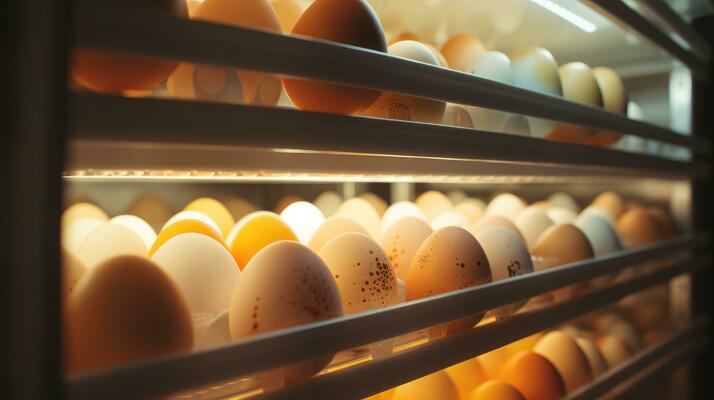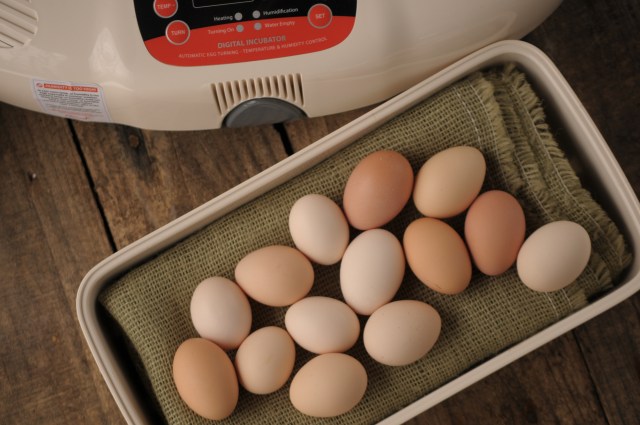When it comes to raising chickens, the use of an automatic chicken incubator can be a game-changer. These devices bring numerous advantages that make the hatching process more efficient and reliable. Whether you’re a seasoned poultry farmer or a hobbyist, understanding the benefits of these incubators is essential.
The automatic chicken incubator benefits are numerous, and they start with providing a controlled environment for the eggs. This ensures that the conditions are perfect for hatching, leading to a higher success rate. Moreover, they save time and effort, allowing you to focus on other aspects of poultry farming. Let’s delve deeper into the benefits and understand why many chicken lovers are turning to automatic incubators.

What Is an Automatic Chicken Incubator?
An automatic chicken incubator is a device designed to simulate the conditions required for egg incubation. It maintains the ideal temperature and humidity levels, turning the eggs at the right intervals to ensure that they hatch successfully. These incubators range in size from small units for home use to large, commercial-grade machines.
How Does It Work?
These incubators are equipped with sensors and a control system that automatically adjusts the environmental conditions. The eggs are placed inside, and the incubator does the rest, ensuring that each egg receives the necessary care. It’s like having a surrogate hen that never tires or makes mistakes.
Key Benefits of Using Automatic Chicken Incubators
1. Consistent Temperature and Humidity
One of the primary automatic chicken incubator benefits is the ability to maintain consistent temperature and humidity levels. This consistency is crucial for the development of the embryos inside the eggs. Any fluctuation can lead to failure in hatching, making automatic incubators an invaluable tool for ensuring success.
2. Time-Saving and Efficient
Manual incubation can be time-consuming, requiring constant monitoring and adjustment. An automatic incubator, however, frees up your time by handling these tasks for you. This efficiency allows you to focus on other important tasks, such as maintaining the coop or attending to the needs of your flock.
3. Higher Hatch Rate
With an automatic incubator, the chances of successful hatching are significantly increased. By providing optimal conditions throughout the incubation period, these devices minimize the risks associated with manual methods. This higher hatch rate means more chicks for your farm or backyard setup.
4. User-Friendly Design
Modern automatic incubators are designed with user-friendliness in mind. They often come with digital displays and intuitive interfaces that make them accessible to even the least tech-savvy individuals. This ease of use is a major advantage for those new to poultry farming.
Impact on Small and Large-Scale Poultry Farming
Automatic incubators are beneficial for both small-scale and large-scale poultry operations. For hobbyists and backyard farmers, these incubators provide a reliable way to hatch eggs without the need for a broody hen. On a larger scale, commercial poultry farms benefit from the efficiency and scalability of automatic incubators, allowing them to meet production demands more effectively.
Adaptability to Different Egg Types
Many automatic incubators are adaptable to different types of poultry eggs, including chicken, duck, and quail eggs. This adaptability makes them a versatile addition to any poultry operation, enabling farmers to diversify their offerings without investing in separate equipment for each type of egg.
Considerations When Choosing an Automatic Incubator
Size and Capacity
When selecting an automatic incubator, consider the size and capacity that best suit your needs. For small-scale operations, a compact model may suffice, while larger farms might require industrial-sized units. It’s important to choose an incubator that aligns with your production goals.
Features and Functions
Look for features such as automatic egg turning, alarms for temperature and humidity fluctuations, and easy-to-clean designs. These features enhance the functionality of the incubator, making it a more effective tool for hatching eggs.
Cost and Budget
Automatic incubators come in a range of prices, so it’s essential to consider your budget when making a purchase. While it might be tempting to choose a cheaper model, investing in a quality incubator can pay off in the long run with higher hatch rates and reduced maintenance costs.
Maintaining Your Automatic Incubator
Regular Cleaning
Maintaining cleanliness is crucial for the proper functioning of your incubator. Regular cleaning prevents the buildup of bacteria and ensures a healthy environment for the eggs. Refer to guides such as cleaning coops for tips on keeping your incubator in top condition.
Routine Checks
Perform routine checks to ensure that the sensors and control systems are working correctly. This involves verifying that the temperature and humidity levels are consistent with the settings. Regular maintenance checks can prevent potential issues and extend the lifespan of your incubator.
Additional Resources for Chicken Lovers
For those interested in further exploring the world of poultry farming, resources such as Purina Mills’ hatching guide and natural calcium sources for hens provide valuable insights and tips.

Frequently Asked Questions (FAQ)
1. How often should eggs be turned in an incubator?
Eggs should ideally be turned at least three times a day. However, with an automatic incubator, this process is handled for you, ensuring optimal conditions without manual intervention.
2. Can automatic incubators be used for different types of poultry?
Yes, many automatic incubators are designed to accommodate different types of poultry eggs, such as chicken, duck, and quail eggs, making them versatile for various farming needs.
3. What is the ideal temperature for hatching chicken eggs?
The ideal temperature for hatching chicken eggs in an incubator is typically between 99.5F to 100F (37.5C to 37.8C). Maintaining this temperature is crucial for successful hatching.
This article contains affiliate links. We may earn a commission at no extra cost to you.











